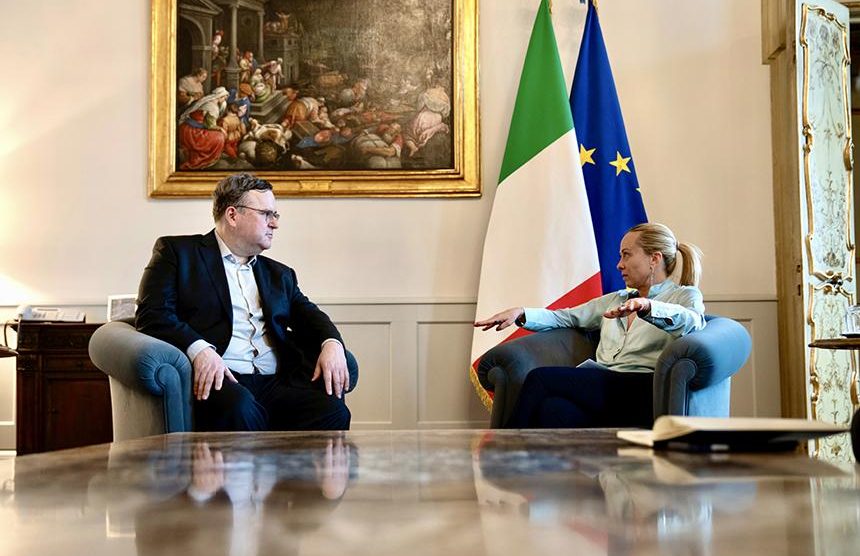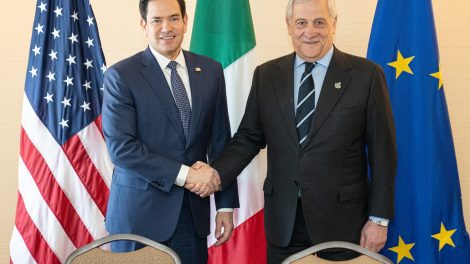The Meloni-Hoffman meeting. On Monday evening, Italian Prime Minister Giorgia Meloni hosted Reid Hoffman, founder of LinkedIn and one of the world’s leading experts on the development of artificial intelligence (AI), in her Roman offices. According to an official note, the two discussed “the opportunities and risks of this technology,” especially “its effects on the world of work and its impact on economies,” as well as “the future of democracies,” the “major ethical issues” and the “consequent need to govern future changes” – as opposed to suffering them passively.
This was featured at the G-7… The issue is being addressed in a multilateral context, not least the Japan-led Group of Seven. When they met in Hiroshima, back in May, the G-7 leaders agreed on the need for governance of generative AI and immersive technologies. They set up ministerial discussions – known as the “Hiroshima AI Process” – and promised to report results by year’s end.
- The United Kingdom’s PM Rishi Sunak has announced a global AI Summit in the autumn, to be held at Bletchley Park, where the ancestors of modern-day computers were used to break the Enigma German messaging encryption and change the course of World War II.
… and Rome aims to make it an imperative. The Meloni executive intends to bring the focus on AI up a notch, with the communiqué noting the issue will be “central” to the Italian-led G-7 in 2024 and emphasising that the human being and “its identity, including his spiritual identity, must always remain at the centre of everything.”
- That’s a chief concern for PM Meloni, who has sought to raise the issue across multilateral fora – including the Hiroshima G-7 and the Council of Europe summits – and beyond – like in her July talks with former United States Secretary of State Henry Kissinger and tech entrepreneur Elon Musk.
It’s time to act. Back in July, the Italian PM stressed that AI pioneers have begun to realise the urgency of setting up guardrails for AI. “You cannot avoid governing a process,” she said, noting the technology’s evolution “runs much faster” than political timeframes, especially those at the multilateral level – which is where the governance effort should happen as the effectiveness of national-level initiatives would be severely limited, she remarked.
- “If we were to make the same mistake we made with globalisation – that is, to let things go and then find ourselves running after them – then the impact could be irrecoverable.”
- Political analyst Ian Bremmer walked the same line in an interview with our sister website, where he suggested that AI is already reshaping geopolitics and posited that its governance must be elevated above international relations, with tech companies being made responsible stakeholders in building the AI architecture.





